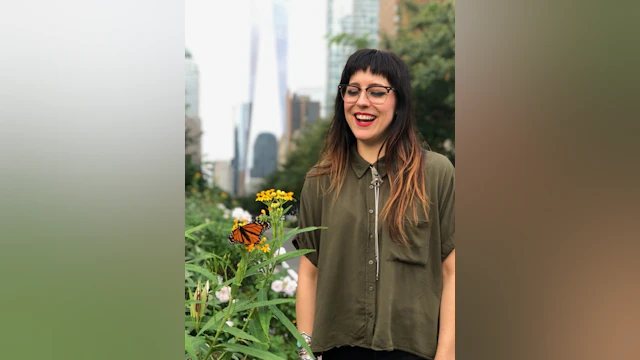It’s funny; my family doesn’t talk about suicide much. We probably should, given that my mom made an attempt in 2006. Largely, it doesn’t come up. It’s not that talking about suicide is off the table in my family, but there are things I didn’t know: namely, that my mom had reached out for support and had not felt helped in the time preceding her attempt.
This came up when I explained to her that a student whom I had just spoken with, in my work as a psychological counselor at New York Film Academy (NYFA), had found my services through the Interactive Screening Program (ISP), an electronic platform we use via the American Foundation for Suicide Prevention. Students are invited to fill out a short – and completely anonymous – stress and depression questionnaire. They then receive follow-up messages (still anonymous) letting them know of available mental health services. Studies have found that in schools and organizations that use ISP, 15-20 percent of students who complete the questionnaire end up making an in-person appointment, highlighting the real need so many people have for support. Often, all it takes is the slightest bit of encouragement.
“I’m so glad she found you,” my mom said. “I wish I had felt important before I did what I did.”
“I can’t tell you enough,” I responded, “So am I.”
Given that NYFA draws students from across the country and around the globe, their beliefs about mental health are varied. Some have no problem recognizing their need for help, while others aren’t so sure. Since I started at NYFA a little over two years ago, I have seen a range of responses to the counseling services at our school. Some students hear that I’m available to them and are practically ready to do a cannonball jump into therapy. These kids will shout out to me at orientation, “Oh! I’m finding your office this week!” Others will more carefully wade into the water, trying not to make a splash. They find me via email, or when they bump into me in the elevator, whisper, “You’re Jacky, right? How do I make an appointment?” Other students (to continue the metaphor) stand on the shoreline, not sure they ever want to swim into the waters of therapy. These students talk to their friends, or make hints to faculty that things aren’t going so well, but they aren’t ready to get their feet wet.
What I have found is that ISP can help reach every one of these students, whether they’re bold, shy or reluctant. NYFA posts vibrant flyers on e-boards, along the hallways, and on our internal website promoting ISP’s use. Beginning at orientation, we plant the seed that getting help is encouraged, no matter what the problem is.
Most of my ISP responses come through our email outreach, targeted during stressful academic periods. (ISP, which is customized for different schools and organizations, can allow for targeted invitations at specific times, and to specific student groups.) In the first few days following the email, my inbox typically fills up with responses. I have a template within the platform to ensure I’m giving consistent information about what a student can expect, but I tend to personalize it, and respond freehand to the students’ surveys, doing my best to ensure each student knows I’m a human being and not a computer generating answers. I look at their responses and tell them what I’m concerned about.
If the student has entered anything into the free text field, which is part of the questionnaire, I address that; those responses always bring up questions for me about what else is happening in their lives. Each one of my responses emphasizes the student’s strengths: each one of the students who have met with me through AFSP’s Interactive Screening Program has been a pleasure to know: talented, dedicated, and passionate about the work they’re doing. They all deserve support.
The beauty of ISP is that students don’t have to commit to anything. In the process of completing the survey, they get information about crisis hotlines, resources in the community, and directions for getting in touch with NYFA Counseling, should they need me in the future. Some of them come in immediately, having resolved their ambivalence about therapy simply by taking that first anonymous step. Others thank me for the information and let me know they are fine for now, but will reach out when they are ready to meet.
The flyers, emails, and discussions precipitated by our school’s use of ISP send an important message: “Talk about your mental health! Get help, no matter what the issue.” I want all of our students to know I am listening, that NYFA is paying attention, and every single member of our community deserves our support.
To learn more about the American Foundation for Suicide Prevention’s Interactive Screening Program, click here.
